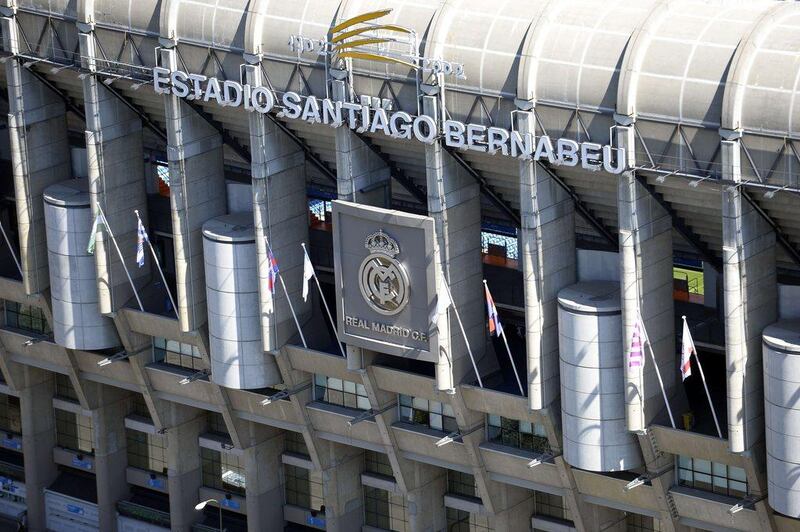Spain's top-flight clubs are ready to shut down La Liga if the government does not pass a law mandating collective bargaining for TV rights soon, Espanyol president Joan Collet said on Wednesday.
“We are ready to halt La Liga if this does not come out in one, two or three weeks,” Collet told Spanish radio.
“I have already spoken with clubs like Valencia,” he added. “We would have to hold another assembly but we are ready if the government doesn’t get a move on.”
La Liga, where the broadcast rights are held by Barcelona-based Mediapro, is the only top European league in which clubs negotiate their own TV contracts.
Collet’s comments come the day after the English Premier League agreed a new collective TV rights deal with Sky and BT Sport for 2016-19 worth £5.2 billion (Dh29.2 billion).
Real Madrid, the world's wealthiest club by income, and Barcelona, the fourth richest, together take about half the annual La Liga TV money of EU€650 million (Dh2.7 billion), one reason they usually finish far ahead of their domestic rivals.
According to Esteve Calzada, CEO of Barcelona-based consulting firm Prime Time Sport, the ratio in England between the team that makes the most TV money and the one that makes the least is about 1.5 to 1 while in La Liga it is 10 to 1.
The team that earns the least in the new Premier League deal will get £106m per season while in Spain they get £11m, compared with about £110m for Real and Barca, Calzada said on Tuesday.
Many clubs in La Liga, including the likes of Espanyol, Valencia and Sevilla, are hopeful a collective deal would enable them to demand more from broadcasters which would then be shared out more equitably to create a more level playing field.
“We are still maintaining this disgraceful situation with the two clubs earning what nobody else in Europe earns,” Collet said.
“The current TV contracts are nearing their end and because the law has not been approved we cannot negotiate the new ones,” he added.
Collet blamed political interference for the delay in the law and said that while Barca appeared ready to accept change Real apparently were not.
Follow us at our new home on Twitter @NatSportUAE





